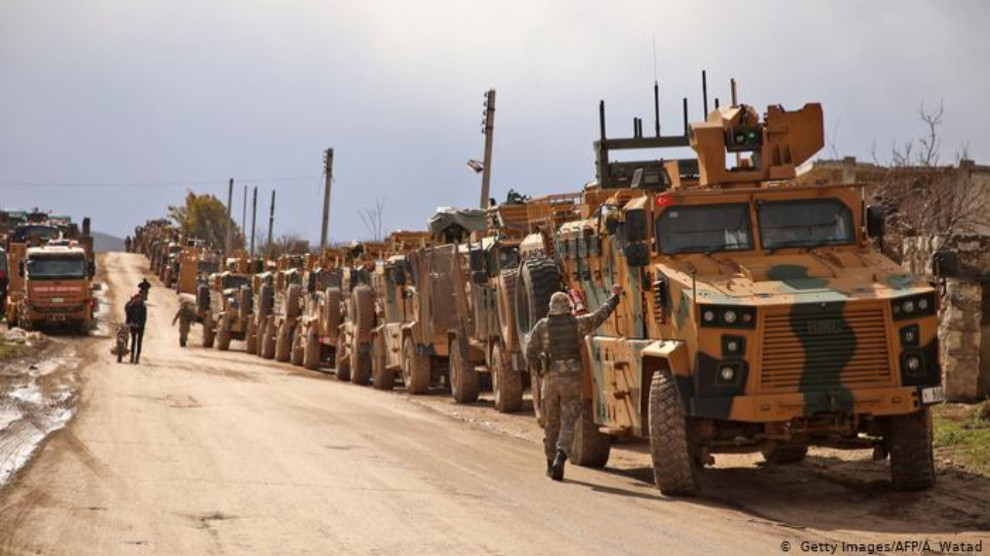29,000 Turkish troops stationed in Idlib
After the Moscow Agreement, the Turkish state massively expanded its military presence in Idlib where 29,000 Turkish troops are stationed in 57 military bases.
After the Moscow Agreement, the Turkish state massively expanded its military presence in Idlib where 29,000 Turkish troops are stationed in 57 military bases.

On March 5, the Turkish state and Russia had agreed a ceasefire for Idlib. Part of the conditions included the establishment of a jointly patrolled "protection zone" and Turkey's action against its allied jihadist militias, such as the Al-Qaeda branch Hayat Tahrir al-Sham (HTS), as well as the end of all military activities. Although more than a month has passed since then, Turkey does not fulfil the conditions and instead uses the global political focus on the Covid-19 pandemic to strengthen its position in the Idlib region of north-western Syria.
The London-based Syrian Observatory for Human Rights (SOHR), which has good connections with armed "opposition" forces in Syria, reports that the total number of military positions of the Turkish state in Idlib has risen to 57. In 2017, the Turkish state had already established twelve so-called observation points, as agreed in the Astana Agreement. According to sources in the region, the number of Turkish military bases in the region is much higher. Contrary to the agreement in Astana, jihadists, including the HTS, are supplied via the military bases and enjoy shelter there. The Turkish secret service MIT also maintains a number of bases in the region.
The Observatory reports that since February 2 until today another 5,745 Turkish soldiers have been transferred to Idlib. This means that a total of 29,000 Turkish troops are now in the region. Since the beginning of February, more than 5,000 armoured personnel carriers, tanks and howitzers have also been brought into the region.
Stronger than the occupation of Cyprus
If you add the number of Turkish militiamen, the strength of the occupying power in Idlib exceeds that in Cyprus, which was 35,000 at the time of the invasion. Due to the Turkish military movements, overflights by the Russian air force have now also increased.
All points of the agreement broken
The first point of the agreement of 5 March, the cessation of all military activities, was broken by Turkey. The other two conditions, the security corridor along the M4 motorway and the start of joint patrols in the security corridor, were also not implemented. Even before he travelled to Moscow, Erdoğan had announced the annexation with the words that it was "inevitable that Idlib will receive a new status".
No action against jihadist militias
Putin had also demanded that Turkey should not allow "any weakening of the fight against international terrorism". In doing so, Putin was referring to Turkish support for jihadist militias such as the HTS in Idlib. Nevertheless, Turkey did not take any action against such groups, it did not even stop actively supporting them.
US as guarantor for a permanent Turkish presence
The Turkish state is aware that NATO and the US are the only guarantee for Turkey to remain in the region permanently. In February, the US and NATO had promised Turkey support under the condition that it would refrain from using the Russian S-400 air defence system.
The transport of S-400 missiles to Turkey began as early as July last year. Now it is said that they are to be activated this week.
RELATED NEWS: